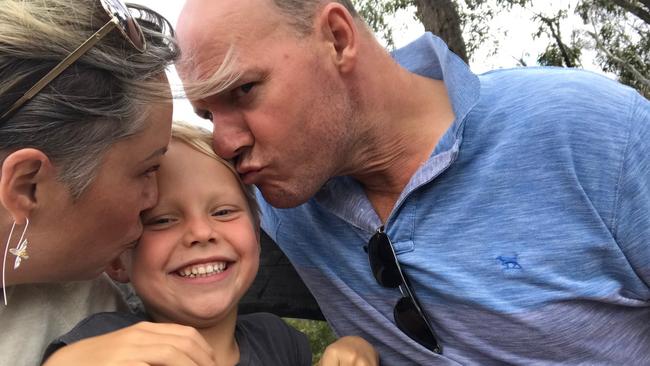‘They’re not reversible’: The desperate kids self-medicating with online hormones
Parents have revealed that services for young people with gender dysphoria are overwhelmed, and the long waiting list and lack of support and treatment are putting children’s lives at risk.
QWeekend
Don't miss out on the headlines from QWeekend. Followed categories will be added to My News.
Katie Williamson prickles a little when husband David points out the similarities between her and late father Bob when she gets “a bee in her bonnet”.
“I was like, what do you mean?! My dad has been a pain in the arse at times, but David’s talking about my advocacy. If I see injustice, I just can’t walk past it.’’
It’s been that way since Sydney-born and raised Williamson was nine years old and accompanied Bob, a builder and Wayside Chapel member, to King’s Cross to offer support, friendship and comfort to homeless people; and later, as a volunteer youth worker. It saw her swap early careers as a research chemist and in marketing with pharmaceutical companies to train as a GP, specialising in rural and, more recently, LGBTIQ+ health.
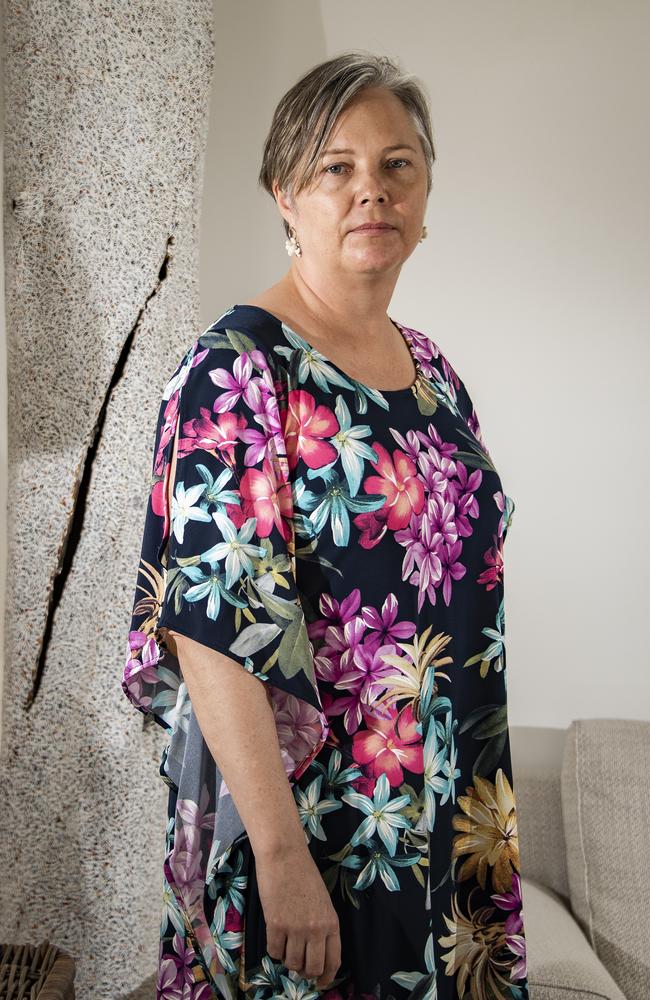
Today Williamson, based at Yorkeys Knob north of Cairns, is a family doctor who worries about her patients and is not afraid to demand better from a health system she sees failing some of the state’s most vulnerable.
The ‘bee’ is the dangerously long wait list for Queensland’s only gender clinic for children; the ‘sting’, distressed, gender-diverse teens growing up in a body which feels foreign, unable to access puberty blockers and specialist psychological care, and distraught parents powerless to help.
All this, while Brisbane’s Citipointe Christian College enrolment contract scandal, controversy around transgender athletes’ place in elite sport and alarmist, misinformed comments from politicians about “surgically mutilated” and “sterilised” transgender children buzz, buzz, buzzes in the national conversation.
Discrimination complaints over school’s controversial gender contract
Trans athletes welcome: W-Series ’bucks trend’
Rugby league joins swimming in banning transgender athletes
“Puberty is the crisis point for these kids. The changes that happen to their bodies are the worst possible change they can imagine as a kid. It’s like if you were to wake up one day and start growing a penis. Oh my god, what is happening here, how can I stop this?’’ says Williamson, 45.
“Some of them are buying [hormone] medications on the black market and dosing themselves, not knowing how much to take. There’s anxiety, depression, self-harm, school refusal, suicidal ideation at much higher rates [than their peers],’’ she says.
“One lady said her child was finally seen by the clinic because they’d attempted suicide and were hospitalised. It’s sickening to think that it takes a child to attempt suicide to get the attention and care they need, but that’s not just happening with transgender people.’’
Frustrated and angry, Williamson says parents are at their wits’ end.
“You need to remember these individual families are also just scared to speak out and say, ‘hey, we’re a transgender family’, because they can potentially suffer abuse from the general public. It’s not like [parents] with epilepsy, say, who can march down the street and say, ‘I’ve got a kid who is not getting the care they need’, and everyone can rally around and hug you.’’
The urgency is not simply driven by a sense of professional responsibility. The same challenges facing her patients loom for Williamson, David and their little miracle.
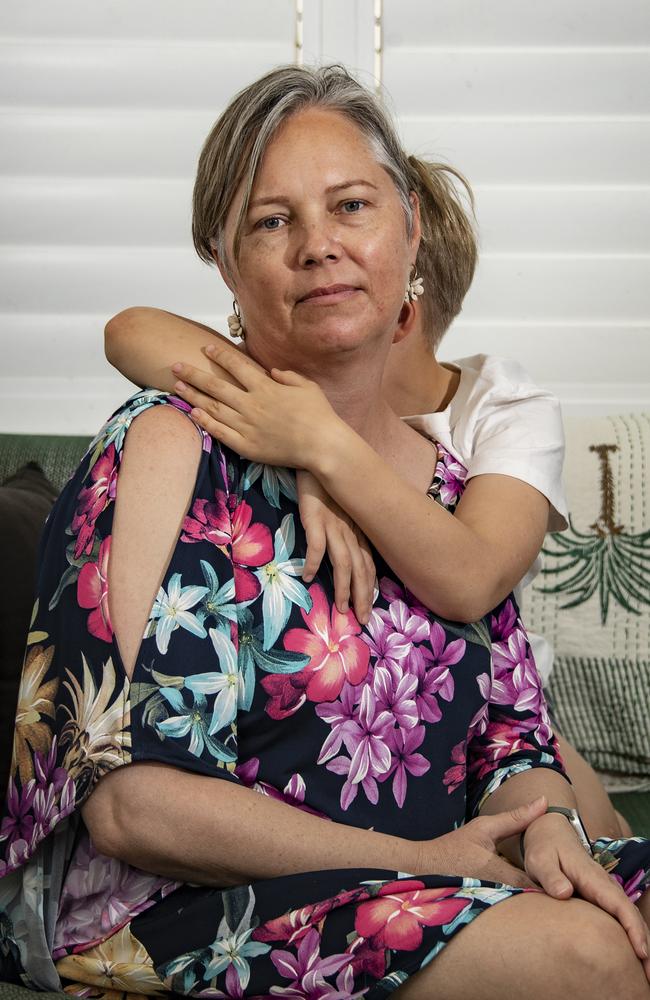
The restorative sun, surf and sand of Clifton Beach, north of Cairns, is working its magic on Pip Godridge when she shares the good news.
Her daughter Zenon, 12, will get subsidised puberty blockers through the Queensland Children’s Gender Service (QCGS) for the next 12 months – but there’s no indication she’s any closer to an appointment.
The QCGS, based at the Queensland Children’s Hospital, provides specialist, multidisciplinary treatment for children who experience and express a gender different to the one they were assigned at birth based on sex characteristics.
Gender dysphoria describes the often serious psychological distress associated with this incongruence between physical characteristics and gender.
Relief is tempered with continuing, mounting fear and frustration for Godridge. As a category two outpatient with gender dysphoria, Zenon should have seen one of the Brisbane-based specialists within 90 days. She’s already been waiting a year.
Access to the subsidised medication – listed on the PBS only to treat advanced prostate cancer – was granted after Godridge, 40, and Zenon shared their story with local media.
It means Zenon will get a break from the distressing physical effects of puberty and Godridge, single mum to Zenon and brother Silas, nine, will only pay around $180 for the four injections.
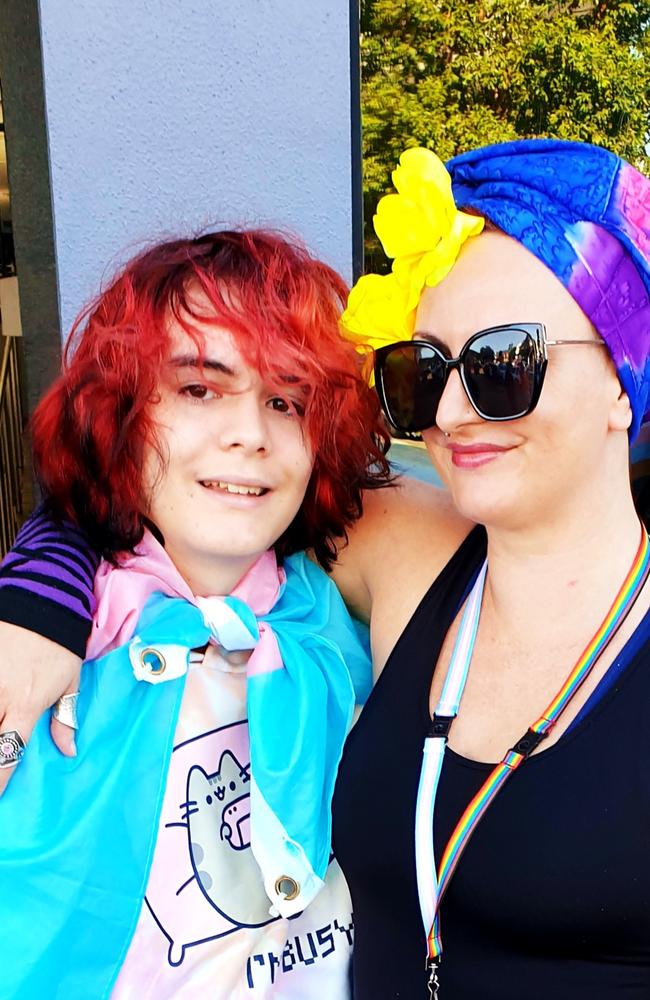
The $4000pa private cost is out of her reach; a situation which prompted fellow PFLAG+ (Parents & Friends of Lesbians and Gays) mum Williamson, Zenon’s GP, to start a GoFundMe campaign earlier this year to help cover projected costs for them and other local families in a similar situation. It paid for the first shot, then QCGS stepped in.
“I was at my wits’ end. I don’t have that spare money and it was literally at the point, okay, which family members can I call to beg, borrow and steal from. This means for the next 12 months I don’t have to stress out and Zenon doesn’t have to stress out in the weeks and days leading up to when her injections are due. We’ve got the puberty blockers locked in, but that’s only one portion of what’s happening with Zenon at the moment,’’ says Godridge, a former youth/social worker and now self-employed children’s entertainer.
In an ideal world, Zenon (and young people like her) would be assessed early and prescribed blockers at the onset of puberty, usually between nine and 13 years, which allows time to gain maturity, clarity and certainty around their identity without any permanent physical effects. Ongoing counselling is provided, social transitioning supported and, if appropriate, hormone therapy begins. Surgery is not considered before adulthood, if at all.
A 2020 Family Court of Australia ruling in Re: Imogen established that if a parent or doctor does not agree with the decision-making competence of a child, diagnosis of gender dysphoria or proposed treatment, an application must be made to the court.
In an Australian-first, QCGS has provided families with financial support for legal costs – $15-25,000 per case – since 2013.
Qweekend understands another Queensland case recently overruled this precedent, removing the obstacle for those with an estranged, absent or jailed parent, or subject to family violence, but the judgment has yet to be published so no details can be provided.
Godridge and her estranged, interstate partner completed mediation to reach agreement. “In terms of accessing treatment, Zenon wants to know what happens next – ‘When can I start oestrogen, when can I feminise more, when can I get voice training, when can I be a real girl, Mum?’
“There’s this ongoing distress every day being in the wrong body. The testosterone levels were really high so she had really bad acne, facial hair and leg hair. She’s just like, ‘get it off me, get it off me’. I don’t want her to start self-harming or cutting or anything like that to try to get rid of things she doesn’t want on her body,’’ Godridge says.
Zenon takes medication for anxiety and depression, and sees a psychologist regularly through the federally-funded Connect to Wellbeing service.
Godridge long had an inkling her first-born might belong to the rainbow community but fights over haircuts prompted a light-bulb moment early last year. Tucking up together for one of their “secret mumma chats’’, Zenon – who kept her birth name – initially described her gender as fluid, then female. Godridge joined PFLAG+ and online support groups.
There is no sense of grief or loss, she says, only excitement and pride that Zenon has the confidence to be herself.
A clever student who loves rollerblading, gaming, Lego and hanging out with her mates, Zenon is “obsessed” with German history and dreams of completing a student exchange there – as well as moving out of home as soon as she turns 18. (“Yeah, right,” scoffs Mum good-naturedly.)
Her state school has been supportive of her social transition, as per Education Queensland and Queensland Human Rights Commission policies.
“I’m 100 per cent, one million per cent, behind my kids; I love them no matter what. Mentally, it’s extremely frustrating and challenging, dealing with the department and the school and the doctors and the nurses and the psychologists, making sure everyone has got all the information, checking in with Zen, and trying to work and run a house and everything,” says Godridge, who lives with mum Robyn Nicholls, 61, a sales/marketing professional, and has the support of her three brothers in Victoria.
“I’m like the crazy Mumma bear that will protect her children no matter what. I’m not going to wrap my kids up in a bubble ball and make sure nothing ever hurts them; that’s impossible to do. But if I can be here to support them and make sure they have a voice, and I can be a voice for them, that’s what matters.’’
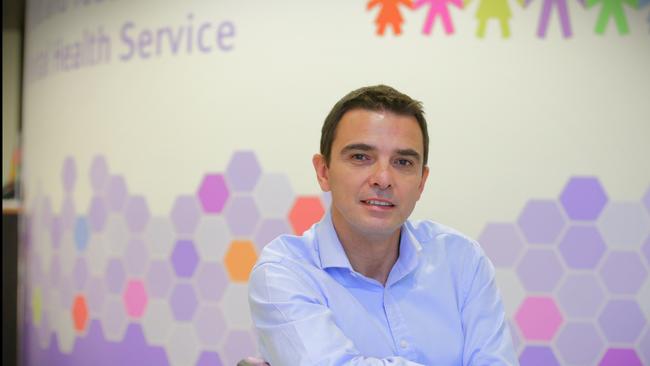
QCGS, the state’s first and only dedicated public specialist children’s gender service, was established at the Queensland Children’s Hospital in 2017, led by child and adolescent psychiatrist Dr Stephen Stathis who has been working with gender diverse children since 2010.
Prior to this, gender diverse families sought out specialists in their local area.
Stathis, who is also medical director of the Child and Youth Mental Health Service, and operational co-ordinator Olivia Donaghy declined QWeekend’sinterview requests.
Answers to a comprehensive list of questions were supplied in a statement by Children’s Health Queensland. Health Minister Yvette D’Ath committed to “continue to fund this important service going forward” in a separate statement.
The service’s budget increased from an initial $975,000 to $2.7m and from staffing levels of 3.5 full-time equivalent roles to 11.4 in the past five years, but has not kept pace with demand.
There is a shortage of paediatric gender specialists in the state’s public health system.
Currently 777 children and young people are being cared for, with another 572 on the waitlist for an assessment as at May 1.
Forty per cent of current and waiting patients are from regional areas. New referrals grew from 182 in the first six months of operation to 635 in 2021. Monthly referrals have doubled since 2020 alone.
Of those on the waitlist, 418 are waiting longer than clinically recommended – semi urgent category two an average 10 months instead of 90 days, and non-urgent category three, an average 17 months instead of one year. Urgent category one patients are being seen within the recommended time frame of 30 days.
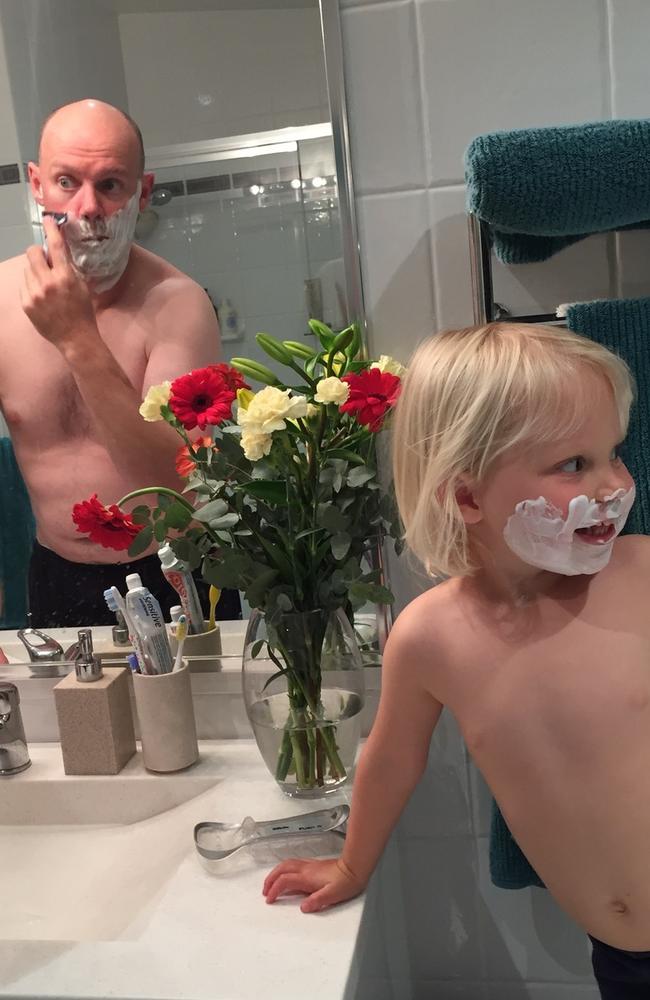
Once a child has been accepted as a patient of QCGS, care is co-ordinated with and provided by specialists close to home, where possible. A nurse navigator is working to increase pathways to care in the regions, while a mental health educator and sexual health physician are training GPs.
“We acknowledge the additional distress [longer waiting times] can cause impacted children, young people and their families, and remain committed to ensuring Queensland children and young people experiencing gender dysphoria are assessed and get the support they need as soon as possible,” the statement reads.
“To help meet increased demand, the Queensland Children’s Gender Service is currently providing an additional clinic on Saturdays [since January 2022] and has redirected staffing to increase the number of new assessment appointments offered each month.”
Unisex toilets for Qld Catholic schools to support student gender transitions
Qld's proposed birth certificate changes prioritise 'feelings' over 'biological reality'
Trans or gender diverse teenagers are 20 times more likely than their peers to attempt suicide and seven times more like to self-harm. They are diagnosed at significantly higher rates with depression (74.6 per cent), anxiety (72.2 per cent), post-traumatic stress disorder (25.1 per cent) and eating disorders (22.7 per cent). Key drivers are body dysphoria, peer rejection, bullying and difficulties at home, school or work.
However, with access to specialist gender-affirming medical treatments, transgender and gender diverse young people can achieve the same or better health, social and educational outcomes as their peers.
“Misunderstanding and confusion about being gender diverse or transgender remains one of the biggest challenges facing affected children and their families,” Stathis says in the statement. “It can prevent them from receiving the help, understanding and support they need as they grapple with the complex issues of identity.
“All children, including those who identify as gender diverse or transgender, deserve access to timely and comprehensive mental health services when required.’’
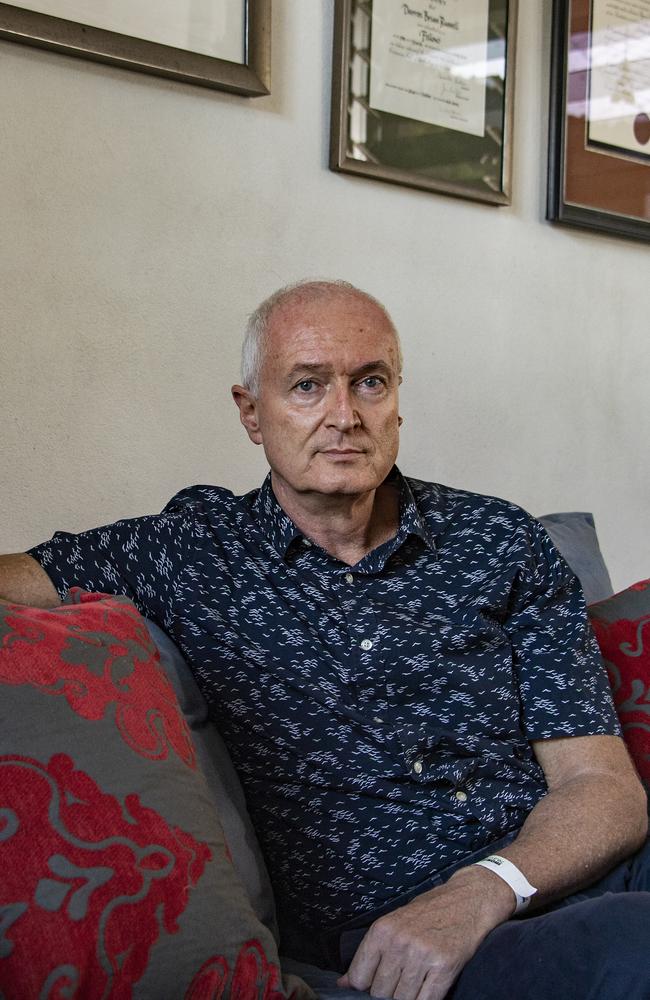
The solution is pretty simple, according to national transgender health experts. De-centralise. Allow local specialists to assess young people, manage their care and provide support – as was done before the service was established.
“At the moment, young people and their families cannot access lifesaving treatment and that’s a dire, dire state of affairs. Not every young trans person will want puberty blockers or hormonal treatment – there are many who don’t – but for those who want it, who need it, it’s lifesaving treatment,” says James Cook University adjunct professor Darren Russell, who has worked in LGBTIQ+ health for more than 30 years.
“This is not just about Cairns. There’s similar problems up and down the coast – Toowoomba, Hervey Bay, Rockhampton, Mackay, Townsville. What we really need is a decentralisation or a hub-and-spoke model, a different model is needed so the care can be given locally,” says Russell, 59, a member of Australian Professional Association for Trans Health (AusPATH).
“It’s not appropriate they have to wait months or years to be seen, just as it wouldn’t for a range of other conditions. What we’re doing now is not working. It’s causing harm.”
Russell is also director of Cairns Sexual Health but Queensland Health declined a Qweekend request to interview him in that role. Neither Children’s Health Queensland nor Health Minister Yvette D’Ath responded to questions about the viability of decentralisation.
Russell says the situation is also taking a toll on medical professionals.
“With increasing demand we see health services not equipped to deal with the numbers and complexities of young people we’re seeing and that is very upsetting, and tiring, and draining for health professionals around the country. All of us – doctors, nurses, psychologists – go to work wanting to do a good job and if we’re prevented from doing that, it’s hard.”
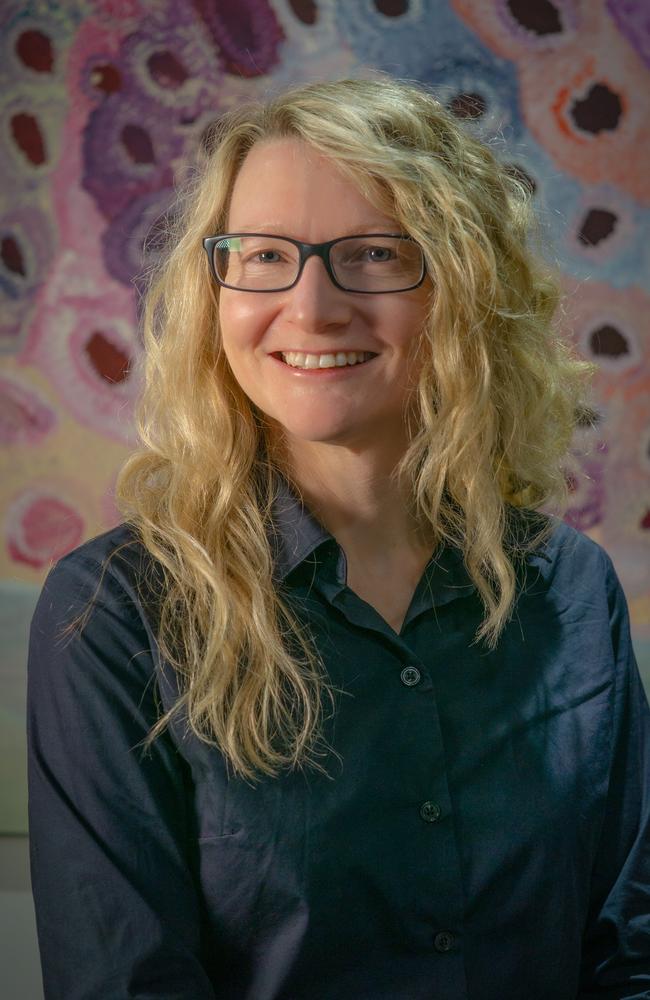
AusPATH president Dr Fiona Bisshop says this is a national issue, with services in other states and territories similarly overwhelmed.
“It’s bad everywhere. The ultimate problem is lack of access due to underfunded and under-resourced clinics. The [doctors] recognise that themselves; they’re really, really stressed by the fact they know they’re not meeting the needs of the population,” says Bisshop, a GP based in inner-city Fortitude Valley.
Just like Williamson, she’s aware of young people self-medicating with hormones bought online, sometimes with their parents’ help.
“They’re not reversible like puberty blockers. If you put someone on testosterone, eventually they’re going to get significant physical changes that you won’t be able to reverse and, similarly with oestrogen, you’ll get breast development. These things need to be supervised, especially with young people. Whilst they see it as lifesaving, it’s not ideal in any case.”
Bisshop says Australia is a world leader in transgender health and access to AusPATH’s online teaching modules, as well as membership, has increased “very much driven” by demand in doctors’ individual practices.
“There is a real hunger for it among the medical profession. They want to learn and network with other doctors who are working in the area.”
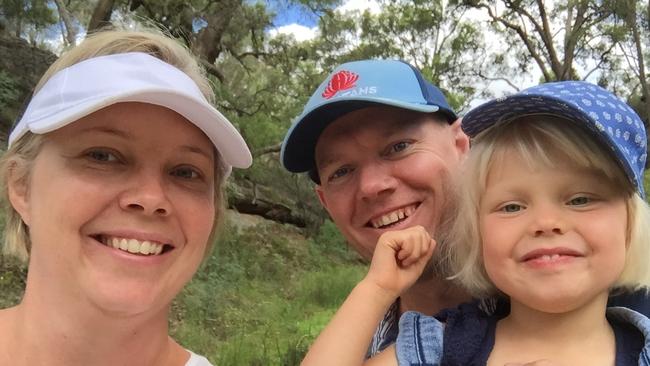
Out for dinner one night, Williamson, David and then eight-year-old Stevie were enjoying their meal when a passing older woman commented: “What a beautiful son you have. So well behaved. What a heartbreaker he’ll be, handsome like a little Brad Pitt.”
Stevie beamed with pride, as he did every time he was mistaken for a boy – which was often. Moves by either parent to correct strangers’ assumptions were met with a disapproving glare.
Williamson commented on the irony, given Pitt and ex-wife Angelina Jolie’s daughter Shiloh had presented as a short-haired boy since she was three years old – just like Stevie.
“That’s when the word ‘transgender’ came up. He was looking at me like, where have you been hiding that word?! That’s me!”
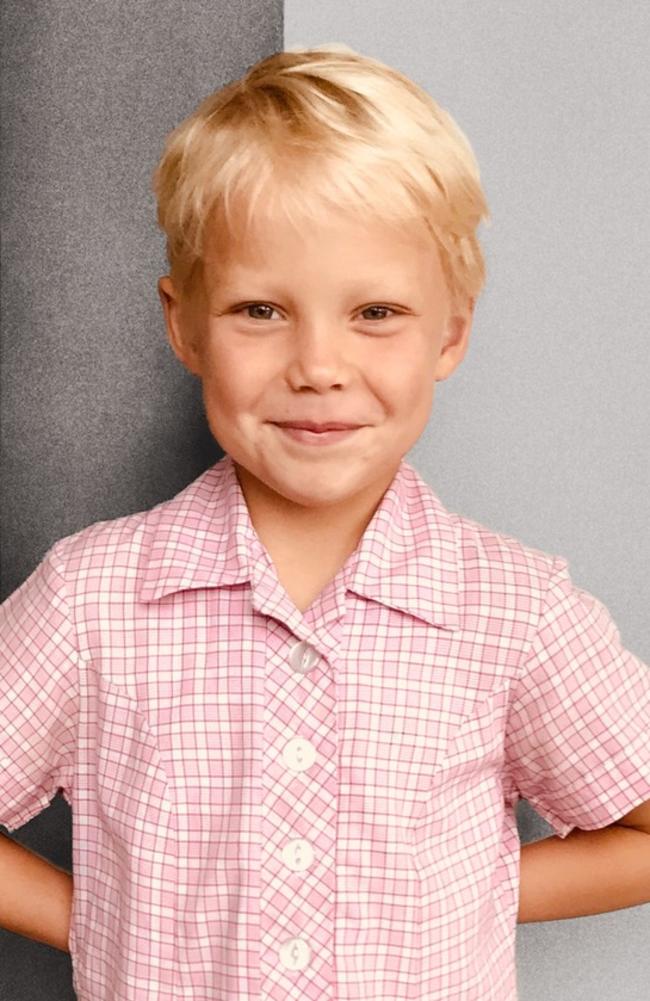
A fun afternoon in June tumbling and jumping around an inflatable playground with mates, pausing only for Toothless the Dragon cake, marked the 10th birthday of their miracle – and almost two years since she became he.
Katie and David met working at the Royal Flying Doctor Service in Broken Hill, far west NSW, where David, now 47 and an ultrasonographer, was a midwife and nurse and Williamson was learning retrieval medicine after internships at Gold Coast and Tweed hospitals. Stevie’s spontaneous natural conception on their honeymoon and safe birth, via emergency caesarean after three days’ labouring in breech position, was both preceded and followed by years of unsuccessful IVF treatment and devastating miscarriages.
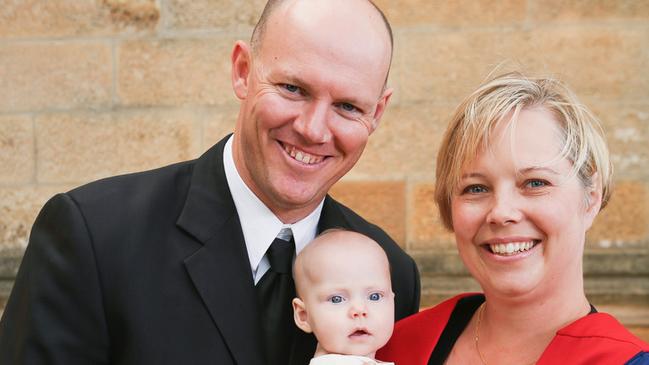
“Having this beautiful baby girl was just an absolute blessing for us … and it’s been a wonderful life with Stevie all the way through,” says Williamson, clarifying the trio refer to baby/toddler Stevie as she/her. Stevie is his birth name, only now as in Wonder not Nicks.
Always a tomboy, Stevie refused pink or purple, dresses or skirts in favour of blue or green T-shirts with camo shorts, and always chose slippery dips and dog Tashy over dolls and Frozen, pixie cuts over pigtails – apart from a brief experiment with dreadlocks. A favourite photo captures the toddler “shaving” with Dad.
Today his room is full of nerf guns, toy cars and Lego, with Spider-Man on the wall, dragon books on the shelf and dog doona on his bed.
The clever, confident boy who enjoys drawing, soccer, gymnastics and hip-hop dancing also recently joined Nippers.
Williamson says Stevie’s social transition across the past 18 months has been very smooth, aided by acceptance at home, at school and at his clubs.
The only parent comment was around how their own family was now better able to talk about diversity and issues like homophobia. She and David prepared him for curly questions.
“His teacher was telling me she witnessed an event where a little boy was saying, ‘So what do you mean you’re a boy, do you have a penis?’ And Stevie ruffled his hair and said, ‘That’s a bit personal, you don’t need to know about that.’ She said it was really sweet.’’
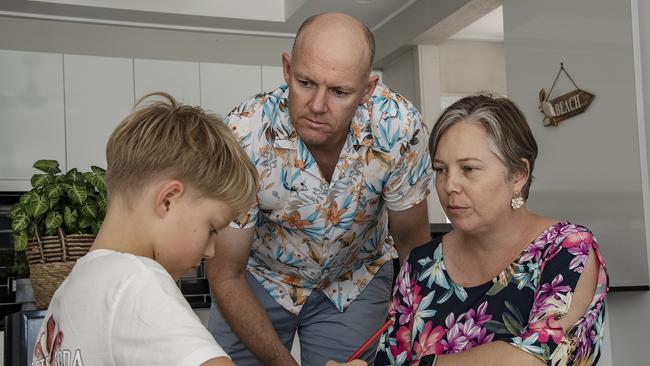
Still, QCGS’s long waiting list (which he’s been on for a year), Stevie’s impeding puberty, horrifying mental health statistics and societal stigma scare her.
Stevie started seeing a psychologist through Cairns Sexual Health and finally secured an appointment with QCGS last week. Another meeting is set for November.
Without it, Williamson says, she would have had no hesitation using her contacts to ensure Stevie was prescribed puberty blockers, grateful she and David can foot the $4000pa bill.
Her voice cracks describing a recent night lying in bed with Stevie, looking at an age-appropriate book depicting the physical changes of puberty.
Her little boy, who thinks she’s the most beautiful woman in the world and dreams of being a dad, “pointed at the boy body at 15 years and said, ‘Oh, that’s what I’m going to look like.’
“He just says, ‘I don’t want to talk about this anymore, I just don’t want it to be hard. I’m a boy like other boys and I just want [puberty] to be like other boys.’
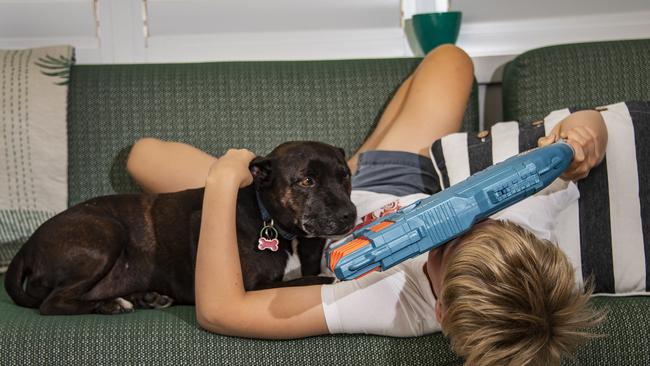
“We’re all looking forward to [the appointment]. Stevie has had nightmares where his body turns into that of a woman. We’ve had blood tests which have reassured him that’s not happening anytime soon. So, I’m glad he’s going to get the care he needs at exactly the right time.”
Since immersing herself in trans health and advocacy across the past 18 months, Williamson knows gender diverse people can live healthy, productive lives, and have happy families of their own.
She knows young people in particular are very accepting of diversity. She has also experienced first-hand how cruel people can be.
“Stevie wants to walk down the street with a trans flag; he’s out and proud. We’ve actually had to reel him in a little bit and say, ‘The world’s not ready for transgender people and some people might be mean to you when you tell them, you’re transgender. Sometimes it’s best to be safe and go along with them thinking you’re just a regular boy.’
“That’s what I worry about. What is society going to do to my child because they’re different?’’
